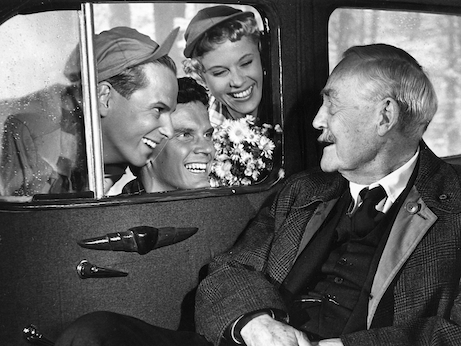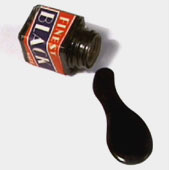
Flashbacks are a controversial device in movies nowadays. I’ve heard a lot of screenwriters be adamantly opposed to them. “They’re a lazy way to relay information,” those against them argue. We’ve all seen movies in which we’re jolted out of a story by a flashback. My take is that they’re useful cinematic devices and not just for giving backstory.
When done well, a flashback is not just a means of giving the audience more information. A flashback, like a fantasy sequence, is one of the few cinematic tools for allowing the audience into a character’s head. As such, they can be used to reflect a character’s psychology, and not just in terms of memory. One of the most masterful, inventive and emotionally satisfying uses of the flashback is Ingmar Bergman’s 1957 masterpiece Wild Strawberries. It’s the story of 78 year-old Prof. Isak Borg (Victor Sjöström) and his trip to receive a lifetime achievement award, during which he picks up several hitchhikers and reflects on his life. The external journey mirrors an internal one in which he reviews his past and takes stock of himself. I know, it sounds terrifically artsy, verging on dull. But, trust me, it’s spellbinding, fun, and ultimately very moving. That double journey Bergman takes us on — the inner look back and the actual drive –, packs a double wallop as we grasp the significance the past has on the present. At the end of his life, Prof. Borg lives in two time-zones, as it were: he can’t help looking back at his life and at his actions. He’s a man who’s taking stock of himself. He’s not dying, but he’s aware that his days are numbered, and as such he’s willing to take an unflinching look at his own role in his disappointments. Although he’s a high-achiever in his career, he’s emotionally numb. His aloofness has made him suffer and has kept his relationships from being truly fulfilling. So when he comes to recognize this within himself and begins, slowly, to change and get closer to the people he encounters, it matters. We care. The last scene in which he asks his daughter-in-law for forgiveness and she gives it is simple, and climactically resonant in a quiet and realistic way.
As we get older, we often look back at a past event and suddenly understand it in a completely different way than we did at the time. The event is the same, but we have changed and therefore see it differently. Wild Strawberries is, simply put, a story of transformation and realistic redemption. It is one of the best arguments for the use of flashbacks I can think of.
Have you seen Wild Strawberries?
